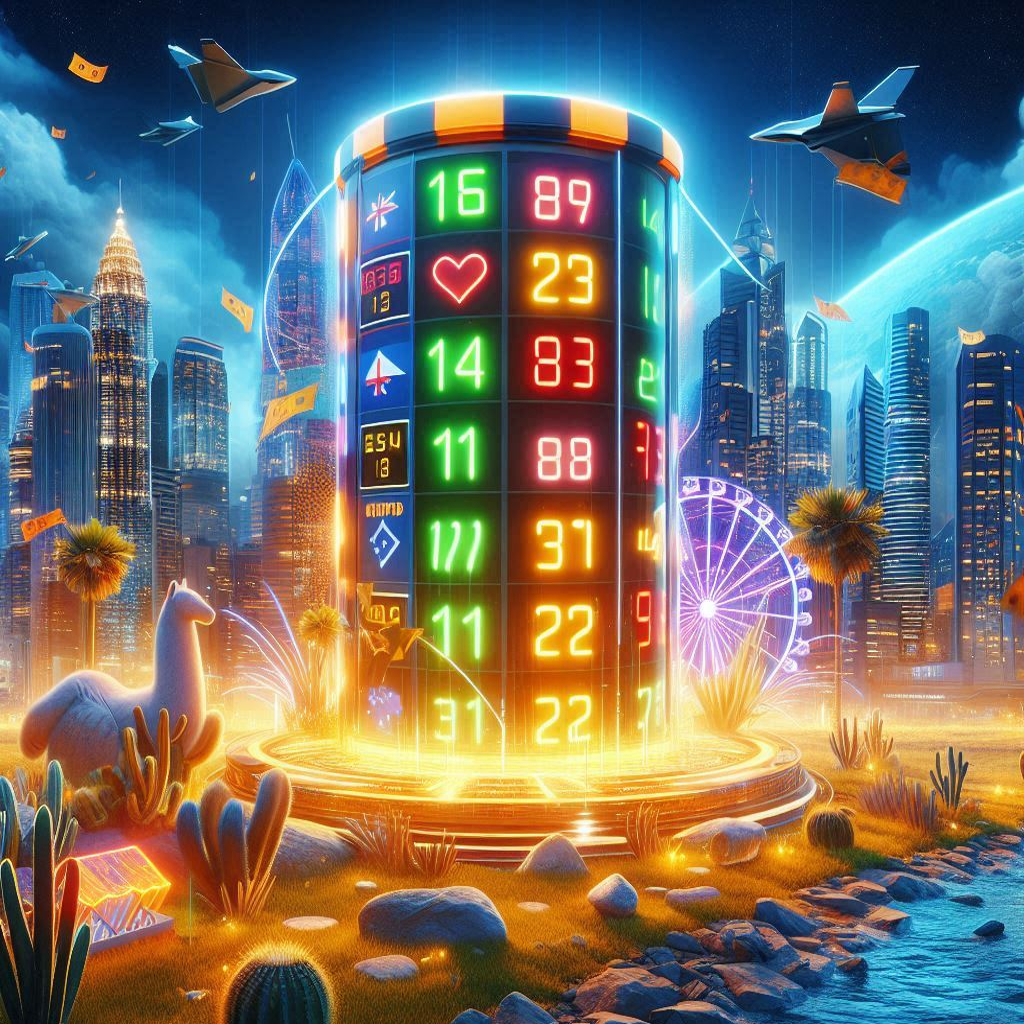
Esports is not just about playing games; it’s also about how teams can get better at winning by using data. This is where esports analytics comes in. Esports analytics means looking at data from games to find out what works and what does not. This helps teams to make smarter decisions and plan their strategies better.
When teams use analytics, they can see things like how often players die, how much damage they deal, and what strategies lead to victory. This information helps teams to understand their strengths and weaknesses. For example, if a player always loses when they play a certain character, the team can try a different approach. By knowing this, teams can change their plans to win more often.
Analytics also helps teams to study their opponents. By checking how other teams play, they can find patterns and predict what the other teams might do next. This is called “scouting” and it is very important in esports. Good scouting can give a team the edge in a match because they can counter the enemy’s moves.
In conclusion, esports analytics is a powerful tool that helps teams to improve their tactics and win more matches. By understanding their own gameplay and studying other teams, they can develop better strategies. As esports becomes more popular, using analytics will be key for teams who want to succeed.
Glossary:
- Esports: Competitive video gaming where people or teams play against each other in tournaments.
- Analytics: The process of collecting and analyzing data to make better decisions.
- Strategies: Plans made to achieve a certain goal.
- Scouting: The act of observing and analyzing an opponent’s gameplay to gain insights for competition.
The Role of Esports Analytics in Improving Team Tactics
Esports analytics is an exciting field that involves collecting and analyzing data from video games to help teams perform better. In recent years, it has become an essential part of competitive gaming, just like statistics in traditional sports. This article explores the importance of esports analytics, the challenges teams face, and the various solutions available to improve team tactics.
Understanding Key Terms
- Esports: Competitive video gaming where players or teams compete against each other.
- Analytics: The systematic analysis of data to gain insights and inform decisions.
- Tactics: The specific strategies used by a team to achieve victory in a game.
- Data Visualization: The graphical representation of information and data to make it easier to understand trends and patterns.
- Performance Metrics: Standards or measurements used to evaluate a team or player’s performance.
Importance of Analytics in Esports
In esports, just like in traditional sports, having accurate data can lead to better decision-making. Teams can analyze their performance, study the opponents, and adapt their strategies accordingly. As League of Legends player Faker once said:
“In esports, knowledge is power.”
This highlights how vital it is for teams to have access to detailed analytics. By using data, teams can:
- Understand player performance more deeply.
- Identify strengths and weaknesses in gameplay.
- Optimize team composition and strategies against specific opponents.
- Enhance training sessions based on analytical insights.
Challenges in Esports Analytics
While analytics can provide valuable insights, it comes with its own set of challenges:
- Data Overload: Teams can have access to vast amounts of data, making it overwhelming to sort through it all to find useful insights.
- Real-Time Analysis: The fast-paced nature of esports often requires immediate data analysis, which can be difficult to achieve.
- Interpreting Data: It’s not enough to have data; teams must know how to interpret it to make informed decisions.
Solutions for Improving Team Tactics through Analytics
There are several effective solutions to overcome these challenges and enhance team tactics:
1. Utilizing Advanced Tools
Many teams use professional analytics software to gather and analyze data. Tools like Gosu.ai and Dotabuff can provide comprehensive stats on player performances and game trends. These platforms simplify the process of understanding complex data.
2. Data Visualization Techniques
Visualizing data can make it much easier to understand. Using graphs and charts helps teams quickly see patterns and trends. For instance, showing win rates on a graph can highlight how certain strategies perform over time.
3. Hiring Data Analysts
Having a dedicated data analyst on the team can significantly enhance how teams interpret and use their data. These professionals specialize in turning raw data into actionable insights. As former professional Dota 2 player Puppey noted:
“Understanding your data is as important as understanding your game.”
4. Regular Data Reviews
Teams should schedule regular reviews of analytics to ensure that everyone is on the same page. Discussing the data allows for collective understanding and helps in refining strategies effectively.
5. Collaboration with Coaches
Coaches can bridge the gap between players and data analytics. By working together, coaches can help players make sense of the analytics and apply them to their gameplay. This creates a more cohesive approach to strategy improvement.
Case Studies of Success
Several esports teams have successfully integrated analytics into their training regimes. For example:
| Team SoloMid | League of Legends | Player performance data tracking | Improved overall team synergy |
| OG | Dota 2 | Game strategy analysis | Two-time international champions |
Both teams have utilized analytics to sharpen their gameplay, showcasing its effectiveness in the competitive arena.
Future of Esports Analytics
As technology evolves, so will esports analytics. The integration of artificial intelligence and machine learning will allow teams to gain even deeper insights that were previously impossible to discover. This advancement will revolutionize how strategies are formed, making esports even more competitive.
In summary, the role of esports analytics is crucial in shaping team tactics and improving performance. By overcoming challenges and employing various solutions, teams can leverage data to stay ahead of their opponents in the fast-paced world of esports.
What is esports analytics?
Esports analytics refers to the process of collecting, analyzing, and interpreting data related to esports games, player performance, and team strategies. This data can include statistics on kills, deaths, assists, objectives completed, and other in-game metrics.
How can esports analytics improve team tactics?
By analyzing data, teams can identify strengths and weaknesses in their gameplay. This enables them to refine strategies, optimize player roles, and improve decision-making during matches, leading to better overall performance.
What types of data are commonly used in esports analytics?
Common data types include player performance statistics, match history, game mechanics analysis, and situational statistics. Metrics like damage dealt, time spent in key areas, and team coordination are also crucial for tactical evaluation.
Can esports analytics predict match outcomes?
While analytics can’t provide guaranteed predictions, they can offer insights based on historical performance and trends. Teams can use this information to make informed decisions about strategies and potential counter-strategies against their opponents.
How do teams implement analytics in their training?
Teams often incorporate analytics by reviewing data after matches, conducting focused training sessions based on insights, and utilizing software tools to visualize data trends. This helps players understand their performance and areas for improvement.
Are there specific tools for esports analytics?
Yes, there are several dedicated tools and platforms for esports analytics. These tools provide in-depth analysis and visuals of player and team performance, allowing coaches and analysts to draw actionable conclusions.
What role do coaches play in using esports analytics?
Coaches are crucial in interpreting data and integrating it into the training regimen. They guide players in understanding analytics and applying insights to enhance tactical execution during games.
Is esports analytics beneficial for amateur teams?
Absolutely. Amateur teams can benefit from analytics by identifying areas for improvement, developing strategies, and enhancing teamwork. Even basic data tracking can inform better gameplay and accelerate development.
Do professional teams share their analytics data?
While some professional teams may share general insights with the community, most keep their data private to maintain competitive advantages. They may share analysis findings without disclosing specifics to protect their strategies.
What future developments can we expect in esports analytics?
Future developments may include more advanced predictive algorithms, integration of machine learning for deeper insights, and greater emphasis on real-time analytics during live matches, helping teams adapt tactics dynamically.

